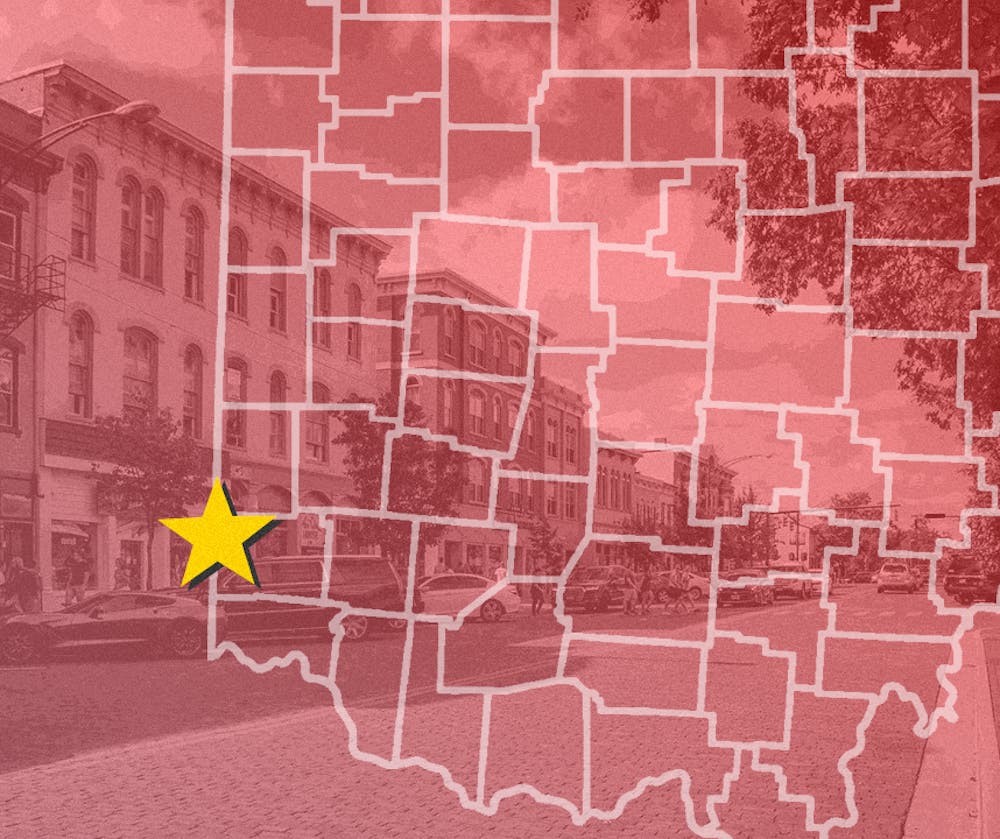As Miami University students begin their fall semester remotely, with many in off-campus housing, Oxford City Council voted to ban gatherings of more than 10 people at its Aug. 18 meeting. The emergency ordinance will be enforced until Gov. Mike DeWine declares the end of Ohio’s state of emergency.
Violators of the ordinance can be charged $500 for the first offense or $1,000 for repeat offenses. The ordinance applies to those holding gatherings with non-household members.
Exceptions include religious gatherings, expressions of First Amendment rights, shopping malls, restaurants and bars, school and university classes and sanctioned events, and retail and grocery stores.
Discussions of the ordinance began during Council’s Aug. 4 meeting.
“I know if COVID spreads to that population off campus — and some of their behaviors are going to put them in risky categories — it could very well imperil Miami’s in-person semester that they’re hoping to have in September,” Councilor David Prytherch said at the Aug. 4 meeting. “And those students are literally pulling into town right now.”
Prytherch said he’s concerned about the large number of students — which include seniors, juniors and sophomores — having large gatherings or parties off-campus.
Vice Mayor Bill Snavely said the Council’s decision could affect future business in Oxford.
“All of the small businesses in Oxford are depending on us to make the right decision here,” Snavely said. “If we all have to close down again, it will be disastrous for a lot of people.”
Jessica Greene, Oxford’s Economic Development Director, explained any violation of the coronavirus restriction will be considered a health and safety violation of Miami's student code of conduct. Violations could result in suspension.
“We really, really need Miami’s help, because they have the big stick,” City Manager Doug Elliott said.
At the Aug. 4 meeting, John Jones, Oxford Police Department Chief, said what the legislation councilors were suggesting may not hold up in court, even in a pandemic.
“There’s a First Amendment freedom to assemble,” Jones said. “So if you’re going to let people protest in the street, who are committing disorderly conduct, you can’t take someone peacefully out of their yard who’s having a party, just for simply being there.”
Enjoy what you're reading?
Signup for our newsletter
Jones asked councilors to allow officers to use existing laws to break up large gatherings. He said officers can cite party goers for disorderly conduct, noise violations, littering or underage drinking and disperse the party.
Prytherch said he wants to try every precaution available to stop the spread of the coronavirus.
“Miami University, if it does not open to students in mid-September, is going to have a $30 million short-fall,” Prytherch said.
As an alternative to large house parties, councilors discussed creating “COVID-safe” programming that would allow for social distancing while also engaging off-campus students.
Miami’s Dean of Students, Kimberly Moore, said as of Aug. 18, 6,717 students reported they were living off-campus.
Jones said this ordinance could be added onto citations for nuisance parties, noise, litter or underage drinking.
“This isn’t a perfect policy,” Councilor Chantel Raghu said. “But the intention is to try to be safe for public health.”




